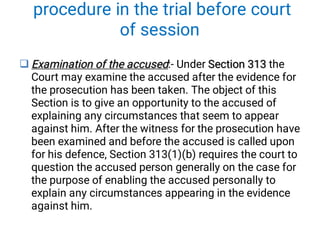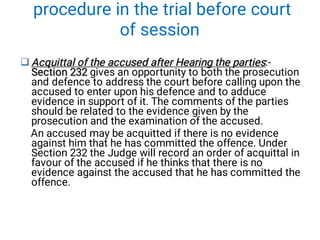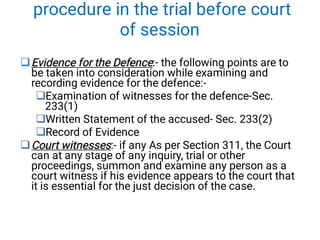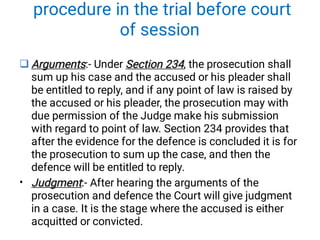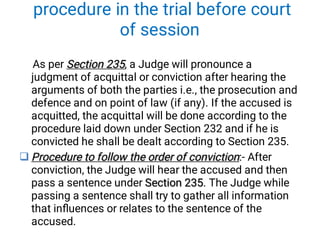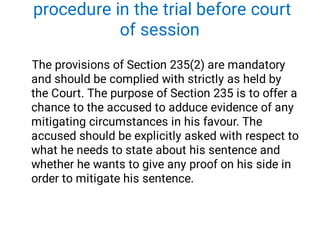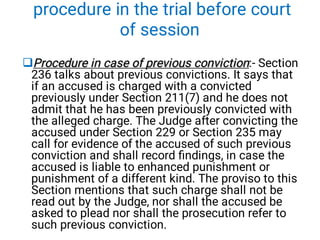This document provides an overview of criminal trial procedures under the Criminal Procedure Code 1973 in India. It discusses the different types of criminal trials, including trial before the Court of Session for more serious offenses. The procedures for trial before the Court of Session are outlined in detail, including framing charges, examining evidence and witnesses, procedures for acquittal or conviction, and sentencing in the case of conviction. Previous convictions can also be considered in sentencing under certain sections of the Code.
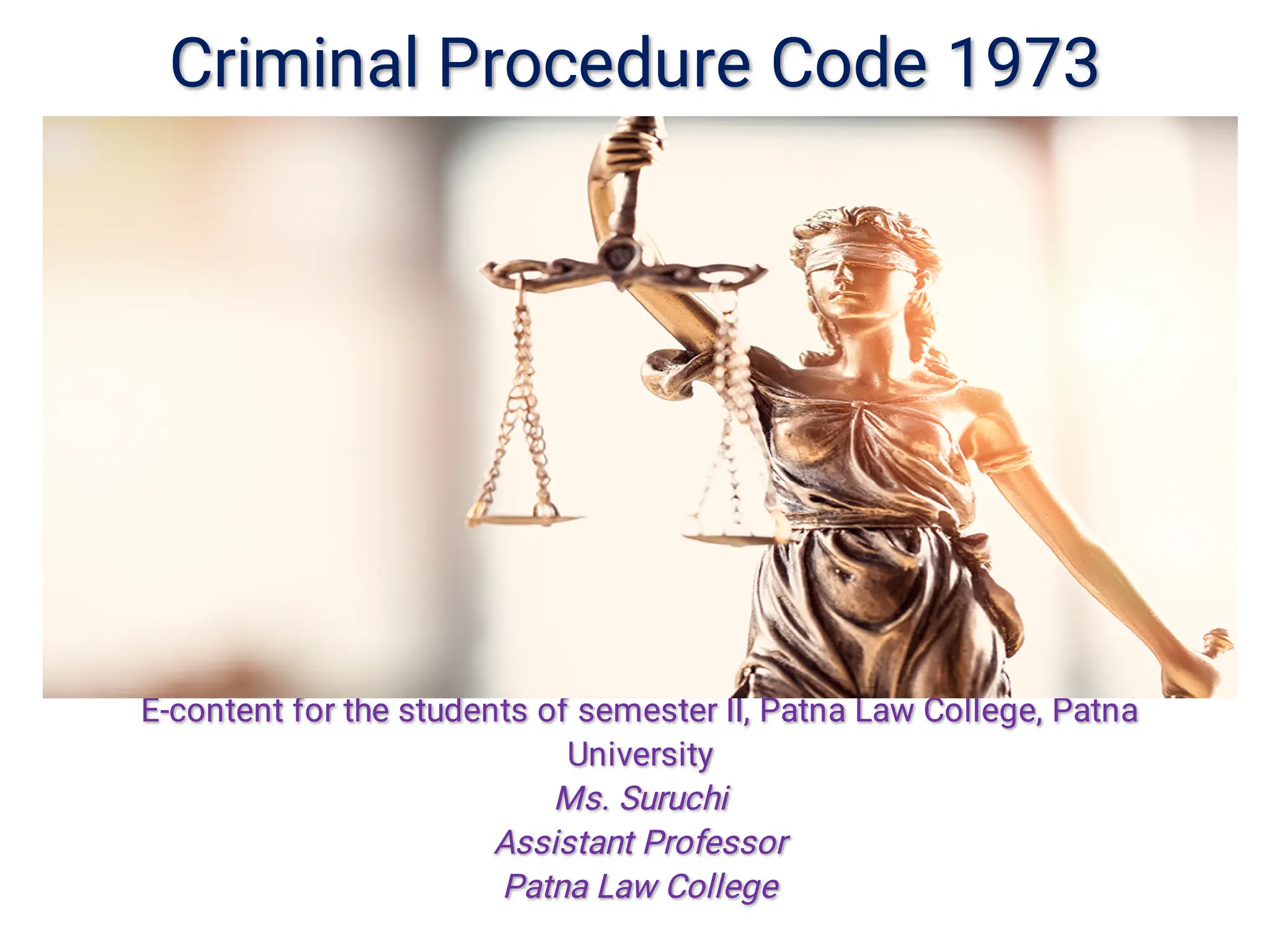
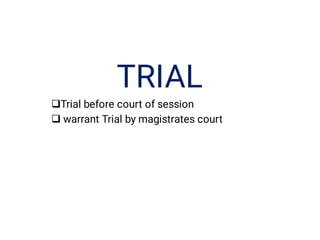
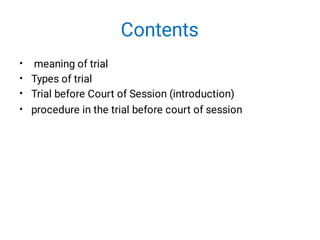
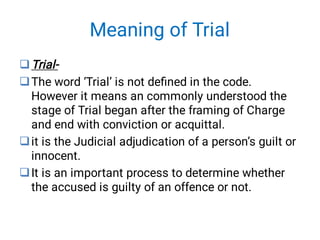
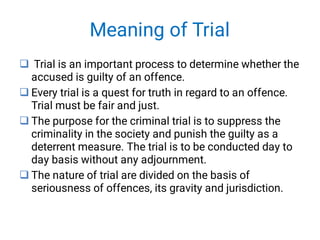
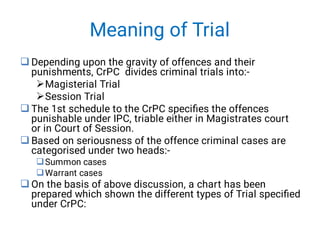
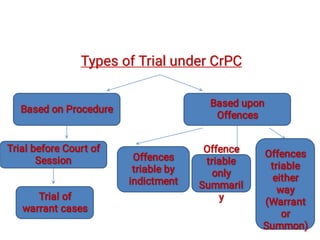
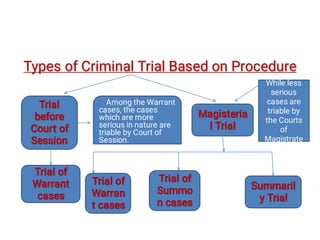
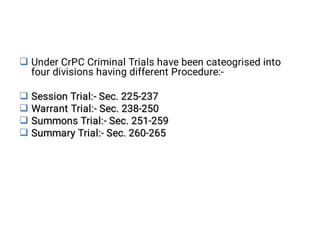
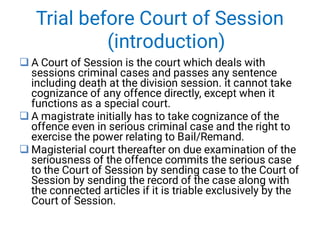
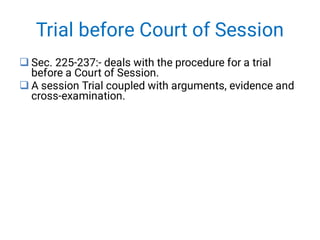
![procedure in the trial before court
of session
Parties: Sec. 225
Parties: Sec. 225
Parties:- [Sec. 225] in every trial before a Session Court,
the prosecution shall be conducted by a Public
Prosecutor. Every accused person has a right to be
defended by a counsel of his choice.
Opening case for prosecution
Sec. 226
Opening case for prosecution
Sec. 226
Opening case for prosecution:- When the magistrate
commits a case under Section 209 to the Court of
Session and the accused appears or is brought before
the Court, the prosecutor is required under Sec. 226 to
open his case by explaining the charge against the
accused and also states the evidence by which he will
prove the guilt of the accused. At this stage, full details
of the evidence need not be stated. The opening of the
prosecution case must only be to matters which are
necessary to follow the evidence.](https://image.slidesharecdn.com/82016-trail-231111061029-71adba46/85/trail-12-320.jpg)
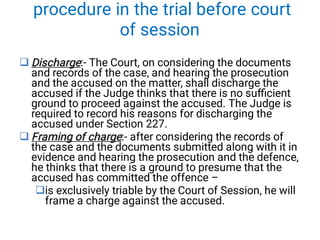
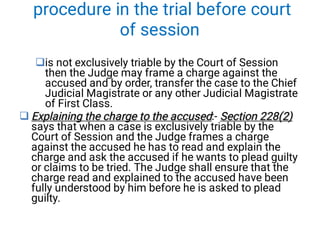
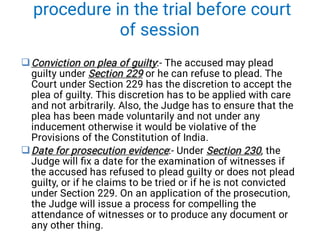
![procedure in the trial before court
of session
–
–
Evidence for prosecution
Evidence for prosecution:-
Examination of Witnesses [Sec. 231(1)]
Examination of Witnesses [Sec. 231(1)]
Court may permit the Cross-Examination [Sec.
231 (2)
Court may permit the Cross-Examination [Sec.
231 (2)
Court may permit the Cross-Examination [Sec.
231 (2)]
When the date is so fixed (as mentioned under
Section 230), The Judge will proceed to take all the
evidence that may be produced by the prosecution
in his support as per Section 231. The Judge has the
discretion to permit cross-examination of any
witness to be deferred until the other witness or
witnesses have been examined or recall any witness
for further cross-examination.](https://image.slidesharecdn.com/82016-trail-231111061029-71adba46/85/trail-16-320.jpg)
![procedure in the trial before court
of session
Record of the evidence [Sec.276-280
Record of the evidence [Sec.276-280
Record of the evidence:- [Sec.276-280] According
to Section 276, the evidence of each witness in all
trials before a Court of Session shall be written down
by the Presiding Judge himself or under his dictation
or under his direction and superintendence by the
officer of the Court appointed by the Judge in this
behalf.
Arguments on behalf of the prosecution
Section 314
Arguments on behalf of the prosecution
Section 314
Arguments on behalf of the prosecution:-
Under Section 314 the prosecutor has to submit his
oral arguments after the conclusion of prosecution
evidence and before any other steps in the
proceedings are taken. It is also necessary to submit a
memorandum, in brief, stating the arguments in his
favour and a copy of that memorandum should be given
to the opposite party.](https://image.slidesharecdn.com/82016-trail-231111061029-71adba46/85/trail-17-320.jpg)
